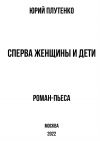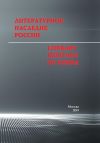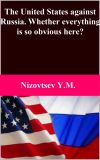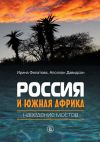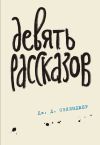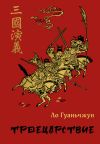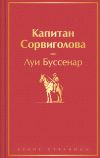Текст книги "Russia 2022"
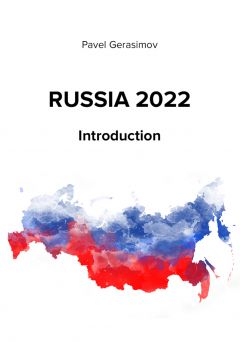
Автор книги: Павел Герасимов
Жанр: Публицистика: прочее, Публицистика
Возрастные ограничения: +16
сообщить о неприемлемом содержимом
Текущая страница: 2 (всего у книги 9 страниц) [доступный отрывок для чтения: 2 страниц]
Useful Links / Government Contacts
Websites
RUS-250
Russian Law Resources in English: http://www.russianlawonline.com
President of the Russian Federation: http://president.kremlin.ru
The Russian administrative bodies: http://www.gov.ru
Security Council: http://www.scrf.gov.ru
The Council of the Federation: http://www.council.gov.ru
The State Duma: http://www.duma.gov.ru
The Government: http://www.pravitelstvo.gov.ru
The Constitutional Court: http://ks.rfnet.ru
The Supreme Court: http://www.supcourt.ru
Federal Courts: https://sudrf.ru/
The Central Bank: http://www.cbr.ru
The Central Electoral Commission: http://www.fci.ru
The Federal Tax Service: https://nalog.ru/
Unified Portal for State Services: https://gosuslugi.ru/
Finance
Imports and Exports
General
RUS-275
Russia is a member state of the Eurasian Economic Union (EAEU). Russia shares its customs and border regime with Armenia, Belarus, Kazakhstan and Kyrgyzstan.
The customs legislation is codified. It consists of the Customs Code of EAEU, and corresponding EAEU acts, treaties, Federal laws, orders of the President, ordinances of the Government and numerous regulations of the Federal Customs Service. On As an EAEU member, Russia also is a member of multiple free trade agreements (e.g. between EAEU and Singapore, Vietnam or Serbia).
Federal customs service
RUS-300
The Federal Customs Service is a united centralised organization, which is answerable to the Government of the Russian Federation. It is responsible for control of imported and exported goods in the Russian Federation; the collection of customs payments, anti-dumping and compensations duties; the compilation of statistics; the prevention and restraint of cross-border fraud and the violation of the currency control regulation. The Federal Customs Service is a huge organization employing tens of thousands of people and is responsible for the major source of state revenues. It is often criticized for being a difficult and unpredictable organization. Yet, as governmental e-services spiked in Russia in recent years, many of the services are provided via the Federal Customs Service website, accelerating the decision-making process and making it more transparent.
Import
Entry points
RUS-325
Goods may be imported into the Russian Federation through the entry points on the Russian border. Some goods, however, e.g. alcohol, tobacco or meat, can be imported only through specially designated places.
Import licenses and quotas
As a general rule, goods entering the Russian Federation can be imported without any restrictions. There is, however, a rather narrow list of goods which can only be imported with the authority of a license granted by the government such as, e.g. alcohol, encryption systems or military objects. In some cases the government imposes quotas or special duties on particular goods. This normally includes such goods as meat, fish or products of agriculture.
Since accession to the WTO, number of import quotas has been gradually falling, quotas being effectively replaced by import tariffs. Still, at the moment this report is being written quotas are imposed on several categories of goods, like metal or meat.
In 2021, however, several important changes in customs legislation come in force. Firstly, from January 1, 2021, customs duties are to be paid simultaneously with customs reporting unless the goods are imported from another EAEU member state. Also, new rules are set for expertice of imported items of cultural and artistic values and some medical products. In February 2021 (with a follow-up in April 2021) new rules for filing a customs declaration come into force, and from March 1, 2021, additional marks in paperback documents will not be made in case of electronic customs declaration filing.
Origin of goods
Goods are considered to originate in a country where they were wholly produced or largely processed. Documentary evidence, in the form of a certificate of origin, is normally required. The certificate must clearly state that goods originate in a particular country and the certificate must contain a written statement of the sender of the goods that they comply with a relevant criteria of origin. The statement must be witnessed by the state authorities of the sender’s country.
As a result of “counter-sanctions” after 2014 sanctions from EU/EEA and other countries, some products originating in the EU/EEA and/or some other countries which imposed sanctions on Russia are either only available to be imported in moderate amounts for personal use only or completely banned. This applies mostly to foods and delicacies (e.g. meat, dairy, fruits, vegetables, etc.), but the list is subject to change. So-called “counter-sanctions” were originally imposed in 2014 by an order of the President, and originally were to expire on August 6, 2015, but the order has been renewed annually ever since.
Customs payments
Customs payments include customs duty, VAT, excise, and a fee for the registration of goods.
Customs duty is usually charged as an ad valorem duty. An obligation to pay the duty arises the moment goods cross the customs border.
The principle method of the valuation of goods is the transaction method, based on the price actually paid for the goods. Once this method cannot be applied, in particular when there is no documentary evidence, or the information provided does not appear to be true, or when buyers acquire limited rights over goods or their rights depend on unpredictable circumstances, or when a transaction takes place between connected persons, customs officers can use other methods of valuation, for example those based on the price with identical or analogous goods, prices on internal market for similar products or even methods based on assumed production costs and delivery expenses and others. However, such valuation, as well as classification of goods to some extent, may be challenged in commercial courts.
Due to the CoViD-19 pandemic, reduced customs duty rates are currently applied to products of critical import and medical products that help fight the coronavirus (thode include some foods like potatos or rice and products of medical use like thermometers, endoscopes and some medicines). However, those reduced rates and reliefs expire on March 31, 2021.
Imported goods, generally, are subject to VAT. There are some exceptions; certain medical equipment is an example. Imported technological equipment contributed into a charter capital of a Russian company is also exempt of VAT. The VAT rate is 20 per cent; for some goods such as some items for children, certain medicines and food the VAT rate is 10 per cent.
A fee for the registration of goods depends on their customs valuation and is relatively small. From August 1, 2020, mininum fee for the registration of goods is RUR 775 (EUR 8.46) and the maximum fee is RUR 30,000 (EUR 327.42).
Some goods such as products of medical use, alcohol or oil are subject to excise. The excise rates are determined by the relevant legal acts.
Anti-dumping duties
Anti-dumping measures are taken when goods are imported into Russia at a price below that at which they are normally sold in their country of origin. A decision on the imposition of anti-dumping duties follows a special anti-dumping investigation and is made by the Government of the Russian Federation. Anti-dumping duties are most applicable towards machinery, machinery detais and some foods. Rates of anti-dumping duties are set by EAEU commission. For example, on February 25, 2021, expires an anti-dumping duty on steel pipes from Ukraine, and on August 18 expires an anti-dumping duty on truck tyres imported from PRC.
Compensation duties
The compensation duties are imposed by the government when the production of goods imported into Russia has been subsidized by a foreign state. The rate of compensation duty cannot be higher than an amount of the subsidy as related to one article of goods.
Export
RUS-350
As a rule, an export from the Russian Federation does not require any permissions or licenses. In some cases, however, the government imposes restrictions (quotas) and/or licenses on the export of certain goods. Restrictions may normally be imposed on the export of oil, gas, certain natural resources, valuable sorts of timber, fish or sea products. Apart from these, the government may restrict exports for security reasons and in compliance with international obligations.
Generally, export duty is an ad valorem duty. However, goods exported from Russia to EAEU are not subject to export duties as EAEU Treaty effectively provides for single market for EAEU member states.
Investment and Finance
General
RUS-375
It is Russian policy to welcome foreign investments. Generally, as Russia is a WTO member state, the regime for foreign companies and the use of the received profit by them cannot be less favorable than the legal regime which is applied to Russian companies. The withdrawals limiting the rights of the foreign companies may be established by Federal laws in public interests (e.g. foreigners are prohibited from acquisition of land close to the border).
The Federal law “On foreign investments”, enforced from July 9, 1999 provides guarantees from any adverse changes to Russian legislation. In particular, new laws increasing tax burdens do not extend to Russian companies with foreign participation of 10 per cent or more of their capital or to any Russian company with foreign capital if such a company is engaged on a “priority project”; that is, one with a total amount of investments of at least RUR 1 billion (approximately €10,970,900) or where a foreign company purchases an equity interest of at least RUR 100 million (approximately €1,097,090). The exemption is granted during the project’s yield period, of no longer than seven years.
Russia also warmly welcomes investment in its several Special Economic Zones (SEZs) across the country. Those zones are differentiated by types of preferred economy sector for investments – be it tourism, logistics, industry or technology. Even warmer the welcome is for investors from BRICS member states.
Acquisition of control over Russian enterprise by foreign companies
RUS-400
Generally, the acquisition of a Russian company by a foreign entity is regulated by the same rules as those applicable to domestic acquisitions. There are, obviously, some restrictions to the access of foreign entities to areas of national interest, such as cryptography, national security, trading in certain products and technologies etc. At the same time Russian law as it stands at the moment assumes the necessity for state protection over domestic companies in certain areas such as exploration of natural resources, banking, insurance and some others.
The amount of participation (quotas) of foreign capital in the banking system is fixed. The quota is calculated as a ratio of the total capital belonging to non-residents in the registered capitals of credit organisations with foreign investments and the capital of branches of foreign banks to the aggregate registered capital of credit organisations registered on the territory of the Russian Federation. Upon reaching the quota the Bank of Russia suspends the issue of licenses for banking operations to banks with foreign investments and branches of foreign banks. Currently the quota is 50 per cent, a maximum level allowed by Russia’s WTO membership.
A credit organization must obtain the preliminary permission of the Bank of Russia for:
• placement of its shares among non-residents; or
• for an alienation of its shares to non-residents.
Resident shareholders of a credit organization must also obtain consent from the Central Bank for an alienation of their share to non-residents. Failure to obtain such permission will lead to the invalidity of the transaction.
Similarly, an insurance company must obtain prior consent from the Federal Service for Insurance Supervision to increase their share of the registered capital formed out of non-resident resources, for an alienation of their stocks to non-residents, and resident participants for an alienation of their stocks to non-residents. Such consent will not be given to insurance companies, the subsidiaries of foreign entities, or those with more than 49 per cent foreign shareholding, or those who obtain such participation as a result of the transaction if the quota of foreign capital in the insurance system has been reached. Currently the quota is 25 per cent.
The Russian legislation restricts the purchase by foreign persons of the shares of domestic enterprises in certain areas. For example, no more than 20 per cent of ordinary shares of gas companies can be sold to foreign entities. Foreign companies and individuals or Russian companies with more than 50 per cent of foreign shareholders may not own agricultural land. Federal Law No.57 of April 29, 2008 restricts foreign investments in those Russian companies operating in certain “strategic” areas, such as construction, production and the trade of arms and military equipment, and technologies and space related activities. Strategic areas also include construction, manufacturing and the repair of aircraft, TV and radio broadcasting and other telecommunication services (excluding the internet), research and exploration of natural resources (on lands of “federal significance”), printing if the enterprise in question can print more than 200 million pages per month and publishing houses with a circulation of over 1 million copies per edition.
On the other hand, Russian legislation provides that a foreign company, at least 25 per cent of shares in which is possessed by a Russian resident (10 per cent if Russian residents are in possession of total 50 per cent of its’ shares) is deemed to be a controlled foreign entity. The income generated by a controlled foreign entity is subject to taxation in Russia if such income exceeds RUR 10 million (EUR 109,140). Nevertheless, such companies may be relieved from taxation in Russia if tax rates for corporate income tax in country of domicile of such entity exceeds 75 per cent effective average rate of Russian CIT, the entity is an active foreign company, holding or sub holding company, operates a new marine hydrocarbon field, participates in mining projects under product-sharing agreements, concession agreements, licensing agreements or other risk-based agreements (contracts) and in some other cases.
Financial services
RUS-425
There are a number of legal Acts regulating the stock market, banking and investments. The principal legal Act for the stock market and securities is the Federal law on the securities market of April 22, 1996, and the Federal law on protection of rights and legitimate interests of investors on the securities market of March 5, 1999. Investment funds are regulated by the Federal law on the investment funds of November 29, 2001.
In Russia the regulation of banking, insurance and investment is carried out by Central Bank of Russia. Until September 1, 2013, The Federal Service for Financial Markets of the Russian Federation (FSFM) (formerly the Federal Commission for Securities and Stock Market) was the state agency responsible for the regulation of stock market and investment business.
Russian law as it stands at the moment regulates collective investment schemes organized in the form of a joint stock investment fund or in the form of a unit trust.
A joint stock investment fund is, generally speaking, a joint stock company whose exclusive activity is investments. The name of an investment company must contain the words “joint stock investment fund” or “investment fund”. A joint stock investment fund is regulated by general legislation on joint stock companies with amendments and exceptions applicable to the investment companies.
A joint stock investment fund must be licensed by the Central Bank. At the time of filing an application for the license the fund must have own capital in the amount aligning with the Central Bank Directives, of no less than RUR 5 million (approximately €54,000). The fund’s property used for its own purposes and assets to be invested must be accounted for separately. Investment assets must be held in trust by a management company. The management can be a limited liability or a joint stock company and it must be licensed by the Central Bank. The fund’s activity must comply with the investment mandate approved, normally, by the meeting of stockholders, and be registered with the Central Bank. This form of investment, however, is rather unpopular.
A unit trust does not comprise a legal entity. The participants of a unit trust pool their contributions into a property complex held in trust by a management company. The participants lose ownership over their contributions, and the trust’s property is owned jointly by all trust members. The management company acts in its name but it must make it known that it acts as a trustee, otherwise the participants will be personal liable.
Again a management company and the trustee of a unit trust, must be authorised by the Central Bank.
Banking
RUS-450
The Central Bank of the Russian Federation is the regulatory body for banking and it is authorised to issue and withdraw licenses to provide banking services. The main legal act is the federal law on banks and banking of December 2, 1990.
A bank can be incorporated in the form of a limited liability or a joint-stock company or in other forms established by company law. Banks are entitled to accept money from individuals or legal entities on deposits, operate these funds in its name and at its own expense, open accounts. Russian law provides different arrangements for the non-banking credit institutions that can provide certain banking operations.
Banking names
The name of a credit institution must contain the words “bank” or “non-banking credit institution”. The Central Bank may prohibit the use of a particular name if such name is already in the Book of State Registration of Credit Institutions.
A credit institution must publish its balance sheet quarterly; it must annually publish a profit and loss account, information about own capital and reserves, and annually a balance sheet and a profit and loss account together with the statement of an auditor who examined the bank’s accounts.
Barrier tariffs
Since 2013, Russian banks apply so-called “barrier tariffs” as a measure against money laundering. Such tariffs apply to the operations and persons banks find suspicious. The measure is, by far, dubious, and application of such tariffs may be challenged in court.
Change of control and directors
The Central Bank must be notified about an acquisition in the ownership or trust by one legal entity or individual or a group of legal entities and/or individuals of more than 5 per cent shares in a credit institution. Prior consent from the Central Bank is required for acquisition of more than 20 per cent of shares. Founders of a bank may not exit within three years after incorporation.
Candidates for the following positions in a credit institution must comply with certain special requirements to qualification established by law and the Central Bank’s regulations:
• a member of the board of directors;
• a chief executive and a deputy chief executive;
• a chief accountant and a deputy chief accountant;
• a head, a chief accountant and their deputies of branches.
A credit institution must notify the Central Bank in writing regarding a prospective appointment to the above mentioned positions in advance. The Central Bank is entitled to prohibit such appointment upon grounds established by law. A credit institution must also notify the Central Bank about each dismissal from these positions.
Insurance
RUS-475
Control over insurance is provided by the Federal Service of Insurance Supervision of the Ministry of Finance (FSIS). The principal legal act is the Federal law on the organization of insurance in the Russian Federation of November 27, 1992. Insurance companies are formed as limited liability or joint stock companies or in other forms of commercial organisations. Insurance companies must be authorised by the FSIS and be included in the register of insurers.
The name of an insurance company must identify the company’s activity and include words like “insurance”, “reinsurance”, “mutual insurance” or “insurance broker”. The head and the chief accountant of the insurer must have an economics or financial education and two years work experience in insurance. The actuary must have mathematical or economics education and an actuarial diploma in actuary. The head and the chief accountant of an insurance company must be citizens of the Russian Federation.
Insurance companies of which more than 49 per cent of shareholders are foreign entities or individuals and subsidiaries of foreign insurance companies may not provide the following insurances:
• life insurance;
• obligatory State insurance (e.g. mandatory health insurance);
• property insurance, related to supply goods and services for the state needs;
• property insurance for state and municipal organisations.
Solvency requirements
The minimal charter capital of an insurance company depends on the kind of insurance the company is involved in and is between RUR 60 million (€653,700) and RUR 480 million (€5,229,600).
Insurers must comply with the solvency requirement established by law as related to reserves, an assets structure, reinsurance quotas, obligations against own capital ratio, etc. Also, in some cases (e.g. life insurance, health insurance) insurance company activities shall be limited to only one type of insurance.
Please note that new requirements and rules for establishing financial sustainability come into force on on July 1, 2021. Under those requirements and the rules for calculation of assets and liabilities, inter alia, it is set that the allowed total amount of securities, loans and alike assets shall not exceed 40 percent of the Insurance Company total asset value.
Внимание! Это не конец книги.
Если начало книги вам понравилось, то полную версию можно приобрести у нашего партнёра - распространителя легального контента. Поддержите автора!Правообладателям!
Данное произведение размещено по согласованию с ООО "ЛитРес" (20% исходного текста). Если размещение книги нарушает чьи-либо права, то сообщите об этом.Читателям!
Оплатили, но не знаете что делать дальше?